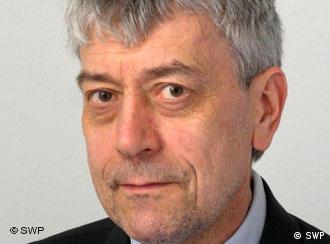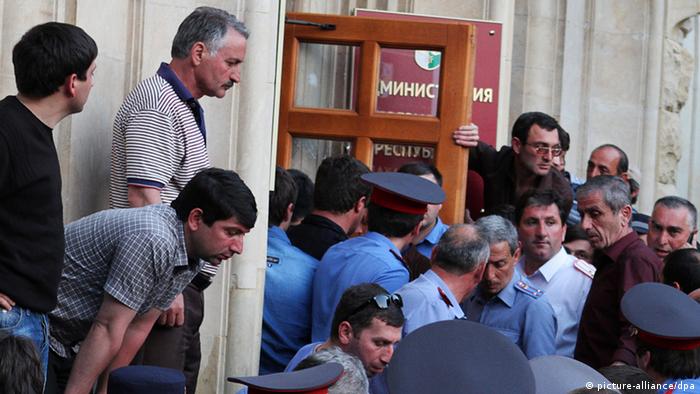Abkhazia's dilemma: no future without Russia
CAUCASUS
Abkhazia's dilemma: no future without Russia
A presidential election is taking place in the breakaway Caucasian territory of Abkhazia. Although its pro-Russian spirit is waning, it remains dependent on Russian military and financial Support.
Abkhazia didn't feature much in the headlines in recent years. The small territory on the eastern coast of the Black Sea separated from Georgia in a bloody conflict in the early 1990s. In 2008, it declared itself an independent state following the five-day Russo-Georgian War. Since then, there has been speculation about whether (or when) Russia, which supports Abkhazia financially and has troops stationed there, will take over the territory - especially since Russia's annexation of Crimea in March.
The protests in May of this year led to the resignation of President Alexander Ankvab and the scheduling of an election for August 24, 2014, adding further complexity to the existing situation. But how likely is Abkhazia to strive for closer ties or even unity with Russia following the vote? According to various observers, Abkhazia, unlike Crimea, is not a target of Russia's expansionist ambitions.
Annexation unlikely
There are no parallels between Crimea and Abkhazia, said Vadim Mukhanov, a Russian expert on the Caucasus, in an interview with DW. He explained that, unlike other breakaway regions like South Ossetia, which also split from Georgia, Abkhazia has good prospects for maintaining sovereignty in the long term.
Georgian political scientist Mamuka Areshidze does not believe an annexation of Abkhazia by Russia is possible.
"Crimea is much more important to Russia," Areshidze told DW. "Now, the most likely region to be annexed by Russia is South Ossetia. Another important factor is the fact that Abkhazians don't want an annexation."
However, according to Uwe Halbach from the German Institute for International and Security Affairs, Russia isn't likely to incorporate any Caucasian region into its territory in the near future. This is because "it would increase international tensions and because there is growing opposition in Russia against strengthening ties with the Caucasus," he told DW. "There are reservations about annexing Abkhazia or South Ossetia."
Leaning on Russia
Halbach added that Abkhazia and South Ossetia are virtually Russian military protectorates. "Russia has an army of up to 8,000 men stationed there and guarantees the two de-facto states protection against Georgia. It holds the reins over both territories in order to maintain influence in southern Caucasus, which it declared as its privileged zone after the Russo-Georgian War."
One of the causes of the May revolution in Abkhazia was resentment over the close connections to Russia. However, all the presidential candidates glossed over the topic in their election campaigns, noted Russian news weekly Kommersant Vlast. Had a candidate spoken out against the Kremlin, he or she would have risked losing Russian support - but had they spoken out in favor of enhancing ties with Russia, they may have lost votes. Abkhazians seem to prefer a path of independence.
No major changes expected
"People are betting on the victory of opposition leader Raul Khadjimba in this election," said Halbach. "Regarding his relationship with Russia, his political course has been very changeable."

Halbach believes Russia wants to maintain influence in the Caucasus
Ten years ago, Khadjimba was seen as a pro-Russian candidate, added Halbach. "But in the meantime he has made some critical comments about Russia and questioned the close relationship."
According to Mukhanov, none of the candidates can be described as pro-Russian - the Kremlin doesn't favor any of them. He anticipates a runoff election, pointing out that aside from Khadjimba there are two candidates with good prospects: intelligence service chief Aslan Bzhania and Minister of Defense Mirab Kishmaria.
No matter who becomes president, Halbach doesn't expect any "dramatic changes" in Abkhazia. But he also doesn't see a possibility of solving the territory's fundamental problems. Although Russia has invested a lot of money into both Abkhazia and South Ossetia, there are no chances for an economic recovery at this stage, he said. Many people still live in damaged houses and makeshift dwellings, which is generating resentment in the society.
The criticism of living standards is just as pronounced as concerns about excessive dependence on Russia. But according to Mukhanov, whoever wins the election "will have to cooperate with Russia because it is the guarantor of security and the most important financial donor for Abkhazia." dw de


Comments